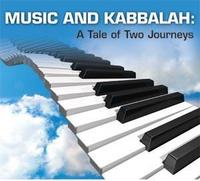Music and Kabbalah
A Tale of Two Journeys
Much like a music teacher opens the world of music, the study of Kabbalah opens a new world—the infinite spiritual world
In recent years, millions of people have become interested in Kabbalah. I began my journey almost four years ago after being inspired by Kabbalistic music. This medium of expression has played an important role in my life since childhood, and unexpectedly, it now helped me understand this wisdom known as “Kabbalah.”
Music has been called the “international language,” but is it really that simple? I was a child of the 60’s, comfortable with the simple melodies and harmonies of the Beatles, Gordon Lightfoot, and Peter, Paul and Mary. I had no interest in any other genre, and dreaded the annual school field trip to the symphony hall. But as an adult, I decided to study classical music, found a piano teacher, and spent hours every day practicing.
Today, it’s hard for me to believe that there was a time when I did not love Bach or appreciate the dissonance of Stravinsky or that I existed 40 years without feeling an urge for opera. Even later, I found I could listen to and enjoy the rap music my son brought home! So what was it that changed?
Everything is in the Ear of the Beholder
Tracing back the steps, my course must have been determined when I began studying piano. My teacher’s unabashed excitement and love for classical music simply rubbed off on me. Soon enough, under her tutelage I began to hear patterns and forms that were the very foundations of music. What was hidden before gradually became clear to me, as if materializing out of a fog.
How did she coax my initial interest in music into a passion equal to hers? She started me with Mozart and Beethoven—music whose tunes and harmonies could be appreciated on the surface, even by my uneducated ear. Working from there, she led me deeper and showed me the subtleties that I missed, opening my ears and mind to new possibilities in the music. We played music, broke it apart and analyzed it, and I listened to her exquisite explanations with awe. As I became more sensitive to the subtleties, we began to go further afield—entering into the world of fugues, atonal harmonies, and strange intervals.
Opening a New World
Years later, when I first heard the music of Kabbalah, my experienced ear immediately sensed that it had come across something entirely new and different—again! I couldn’t quite put my finger on it, but I somehow sensed that there was an infinite depth of meaning and emotion to be revealed if only I would explore this music more deeply. And it was only later, after I did delve into it, that I realized that there was even more: Kabbalah is a methodology of opening us to a totally new world that we do not sense today, just as my piano teacher opened a new world of music for me.
The difference is that when learning about classical music for the first time, I already possessed the sensory apparatus (ears) I needed for studying music. In Kabbalah, however, we not only need to develop an appreciation of the forms and objects of what is termed the “spiritual world,” we must also develop a new “sense” to be able to perceive them.
The path of Kabbalah begins with a new desire. Usually, it is expressed though questions such as, “What is the meaning of life?” and “Why am I here?” Once this desire awakens, we have the motivation to do something about it—to find something to fulfill this desire. That is how we find our way to the books of Kabbalah—an extensive library of materials left to us by Kabbalists throughout the centuries, explaining the spiritual worlds.
These great men have gone before us and entered the spiritual worlds. Their writings tell us exactly how they got there and what they found in this new state. The books form a bridge for us to do the same.
If you try to read Kabbalistic texts such as The Zohar, however, you will discover a world of strangeness and mystery. The gulf between our world today and the world that the Kabbalists are telling us about is too vast for us to navigate without assistance. Just as my piano teacher led me through the maze of music appreciation, a teacher of authentic Kabbalah can show us how to interpret these texts. By starting with concepts we can relate to in some small manner, we can gradually build an awareness and appreciation of the spiritual concepts. In so doing, we actually develop a new sense that will eventually be capable of perceiving this new world.
Experiential Study
Just as in music, we must eventually dive into this new world ourselves. I could have been satisfied with becoming an expert in music theory, but I wanted to feel the music, not just understand it. The same is true with Kabbalah.
There are many “experts” who can tell you the structure of the spiritual world in infinite detail, but that is not what Kabbalah is about. Even more than music, it is an experiential study. As we read text or listen to the beautiful music of Kabbalah, what we are really studying is ourselves and our inner world. Unless we feel these concepts within, we have accomplished nothing.
The Kabbalists left us the map and instructions, but it is up to us to make the journey.
